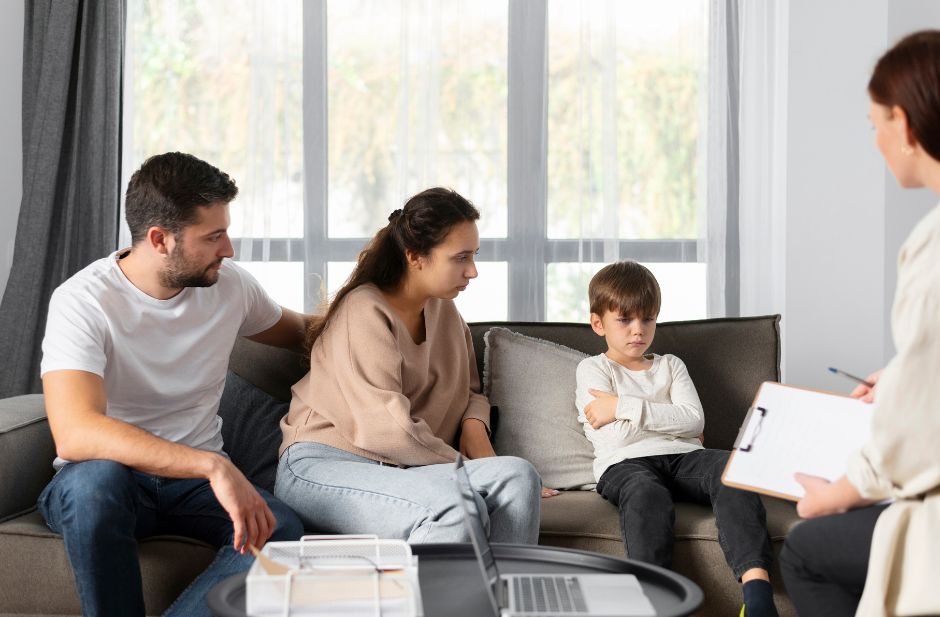When parents share custody, disagreements about a child’s mental health care can get messy. Like, really fast.
Emotions spike, tempers flare, and suddenly a simple decision feels like climbing Everest. At Bishop, Del Vecchio & Beeks, we often help families wade through these situations, trying to balance what parents want with what’s actually best for the child.
Honestly, knowing how courts see these disputes can save your mental health in custody cases. Don’t you wish someone had told you that sooner?
The team at Bishop, Del Vecchio & Beeks often helps families navigate these disputes, balancing parental rights with a child’s well-being.
Why Mental Health Disputes Arise In Custody Cases?
Shared custody works… when parents are actually on the same page. But toss mental health care into the mix?
Oh boy. One parent says, “Therapy, yes, definitely.” The other hesitatesmaybe worried about cost, stigma, side effects.
Weirdly, both usually want the same thing: the kid’s well-being. It’s just the “how” that trips everyone up. These disagreements tend to intensify during major life changes, such as a divorce, a move, or struggles at school.
Disagreements usually flare during big life shiftsdivorce, moving, or school struggles. Without a plan, treatment can stall or get interrupted. Spotting problems early? That’s your golden ticket. Set up some kind of communication system before things blow up. Trust me, it’s worth it.
What Are The Different Segments Of Negating Mental Health In Custody Cases?
There are different factors that come into play when someone goes through custody cases. I noted and described them below.
1. The Legal Framework: How Courts Approach These Disputes
Family courts usually put the child’s best interests front and center. Judges sift through whatever evidence helps them decideschool reports, therapy notes, medical records, you name it.
Sole legal custody? That parent usually calls the shots. Joint custody? Then both parents need to agree the court steps in. Judges often lean on expert testimony or guardian ad litem reports. Basically, they want to know: “Will this treatment actually help the kid?”
2. The Role Of Mental Health Professionals
Mental health professionals play a crucial role in the well-being of children, particularly in situations that require parental or court intervention.
These experts, pediatric psychiatrists, therapists, and psychologists, offer valuable insights that help parents and judges make informed decisions.
They provide a neutral and professional perspective, guiding families through complex emotional landscapes.
By conducting thorough evaluations, these mental health specialists track a child’s progress over time, identify any risks that may arise, and articulate how different treatment options can foster healing and growth.
Their expertise is not just about diagnosing issues; it’s about understanding each child as an individual with unique needs.
Documentation from mental health professionals is incredibly important in these cases. It serves as a formal record that demonstrates decisions are made based on expert guidance rather than personal conflicts.
This approach underscores a vital message: “This isn’t about us arguing; it’s about the health and happiness of the child.” Such a perspective shifts the focus from adult disagreements to ensuring that children receive the care and support they genuinely need to thrive.
3. Communication Strategies For Co-Parents
Open communication is still king. Parents who approach talks with empathy and focus on the child’s emotional health tend to find common ground.
Apps, shared calendars… small tools, big difference. By establishing structured communication, such as through parenting apps or shared online calendars, miscommunications can be minimized, and appointments and updates can become more transparent.
Agreeing on how mental health info gets shared matters too. Both parents might attend therapy updates or get reports directly. Clear boundaries make misunderstandings less likely and keep everyone in the loop.
4. Mediation And Alternative Dispute Resolution
When talks hit a wall, mediation can be a lifesaver. Neutral mediator, everyone gets a say, and compromises happen. Usually faster, private, and less stressful than court. Sounds nice, right?
Sometimes courts actually require mediation firstespecially for mental health stuff. If it works, parents leave with written agreements about decision-making and how future issues will be handled. Early effort = fewer headaches later. Kids notice the stability too, even if they don’t say it.
5. When Court Intervention Becomes Necessary
Can’t agree? Courts step in. Judges might request mental health evaluations or appoint impartial assessors. Usually, the parent who gets the child’s needs and shows willingness to follow proper treatment gets the nod.
Courts look at history, too. Parents who focus on the child, communicate consistently, follow adviceyeah, they usually get a favorable view.
And in extreme cases, judges can tweak custody agreements to make sure care happens on time.
6. Protecting The Child’s Emotional Stability
The emotional safety of our kids should always be our top priority. Children can pick up on tension, even if we think we’re keeping it under wraps.
Staying calm, steering clear of blame, and presenting a united front when we can really makes a difference.
Even when we don’t see eye to eye, prioritizing our children’s comfort and privacy is essential for helping them feel secure.
At the end of the day, it’s not about who “wins” an argument; it’s about creating a stable and loving environment for them.
Degradation Of Mental Health In Custody Cases Explained
When it comes to disagreements about mental health care, the stakes can feel incredibly high. It’s tough, really tough.
However, it’s vital to keep the child’s welfare at the forefront of any discussions. The focus shouldn’t be on winning the argument or proving a point; rather, it should be on what is best for the child.
With the right support from professionals like Bishop, Del Vecchio & Beeks, families can navigate these complex issues with a foundation of empathy, structure, and respect.
It’s about coming together, listening to each other, and finding common ground for the sake of the child.
This journey can be overwhelming, but it doesn’t have to be a battle. Effective communication is key. It’s important to discuss concerns openly, share insights, and remember that both parents care deeply about their child’s well-being.
By seeking expert guidance, families can gain valuable perspectives that can transform a tense situation into an opportunity for better care.
















